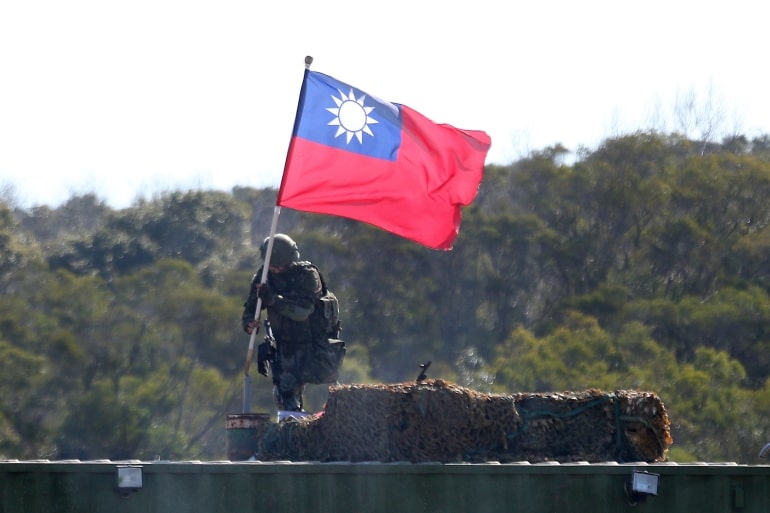After that, Biden continued his remarks. When asked if the United States was willing to become militarily involved in Taiwan’s defense, he responded with “Yes.” That’s the promise we made to each other.”
One china policy
He continued by saying. We agreed with the One China policy, and we signed on to it. But the concept that it can be seized by force is just not right; it would dislocate the entire region, and it would be another action similar to what happened in Ukraine.”
Taiwan And Ukraine
Biden made a direct connection between the destinies of Taiwan and Ukraine when he stated that Western sanctions against Russia must exact a “long-term price” because if they don’t, “what signal does it send to China about the cost of seeking to seize Taiwan by force?”
He cautioned that Beijing was already “flirting with danger right now by flying so close and all the manoeuvres have done.” He was alluding to the increasing frequency of Chinese flights, navy exercises, and other forms of military projection in the Taiwan Straits.
Chain’s stance on USA threat
The foreign ministry spokesman in Beijing, Wang Wenbin, quickly replied to the situation by proclaiming that “no one should underestimate the robust resolve, staunch will, and great capacity of the Chinese people in preserving national sovereignty and territorial integrity.”
According to the spokesperson, China “has no space for compromise or surrender,” and the country would always protect its interests with the force of its 1.4 billion citizens.
There has been no change in policy
The United States, along with the majority of other nations, gives diplomatic recognition to Beijing over Taiwan. However, it also keeps what may be consider de facto diplomatic links with the democratic and self-ruled island.
Over the course of several decades, it has adhered to a policy known as “strategic ambiguity,” which entails never making it entirely clear what actions it would take in the event of an invasion while simultaneously agreeing to assist Taiwan in the construction of defenses against an assault by Beijing. Read more.
The policy had two goals:
The first was to prevent Beijing from openly declaring war. And the second was to prevent Taiwan from formally declaring its independence.
The remarks that Vice President Biden made on Monday cast a cloud on his rollout of a new regional trade framework that includes 13 nations as well as the meeting of the Quad group on Tuesday.
White House on Taiwan Matter
According to the White House. Vice President Biden’s comments do not represent a departure from the official .One China policy, which includes the promise to “give Taiwan with the military means to defend itself. “There has been no change to our policy,” the spokesperson stated.
Status quo
The status quo is being visibly disrupt, however, both by Russia’s invasion of Ukraine and by Beijing’s increasingly bellicose rhetoric about the matter.
Japan
Japan, which has on multiple occasions cautioned China against making “unilateral” measures to change the status quo, is one of the countries that is bolstering diplomatic support for Taiwan. Read More.
Kishida
Kishida made a plea for peace in the Taiwan Strait and stated. That Japan was determine to increase its military budget. Which is a contentious issue in a nation that has constitutional restrictions on the size and scope of its armed forces.
During a joint news conference with Vice President Joe Biden, Kishida made the following statement. Japan will fundamentally upgrade its defense capacity, and to back that up, will significantly boost its defense spending. We don’t rule out any options, including (acquiring) the capacity to counterattack. He added. “We’re keeping all of our options open.”
Joe Biden
The Vice President of the United States, Joe Biden, is currently in Japan as part of a trip to Asia. That is meant to strengthen regional connections and demonstrate. That Washington is still commit to the region despite its substantial participation in the conflict in Ukraine. On Monday, he announced thirteen countries had joined a new trade initiative in the Asia-Pacific region. That is being led by the United States and promote as a counterweight to China’s aggressive expansion.
